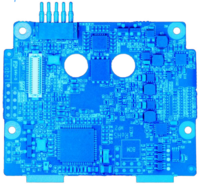NanoGUARD
⚠️ Article status notice: This Article's Relevance Is Under Review
This article has been flagged for questionable relevance. Its connection to the systemic consumer protection issues outlined in the Mission statement and Moderator Guidelines isn't clear.
If you believe this notice has been placed in error, or once you have made the required improvements, please visit the Moderators' noticeboard or the #appeals channel on our Discord server: Join Here.
To justify the relevance of this article:
- Provide evidence demonstrating how the issue reflects broader consumer exploitation (e.g., systemic patterns, recurring incidents, or related company policies).
- Link the problem to modern forms of consumer protection concerns, such as privacy violations, barriers to repair, or ownership rights.
If you believe this notice has been placed in error, or once you have made the required improvements, please visit either the Moderator's noticeboard, or the #appeals channel on our Discord server: Join Here.
Actnano Advanced NanoGUARD (ANG) is a conformal coating product which can be directly applied to electronics during or after manufacturing. The ANG coating is free of PFAS and fluorine and is REACH and RoHS compliant.[1]
| Basic Information | |
|---|---|
| Release Year | 2021 |
| Product Type | Electronics coating |
| In Production | Yes |
| Official Website | https://actnano.com/ |
Consumer impact summary edit
In an interview with YouTuber Salem Techsperts, actnano CEO Taymur Ahmad explains that ANG is a proven technology currently in use under extreme conditions such as electric vehicles, but laptop manufacturers reject the use of nanoGUARD since 20% of their sales comes from consumers who blame themselves for their broken devices after spilling liquid on them. Thus it is against their financial interest to spend one extra dollar per device to waterproof their PCBAs during manufacturing.[2]
See also edit
Link to relevant theme articles or products with similar incidents.
